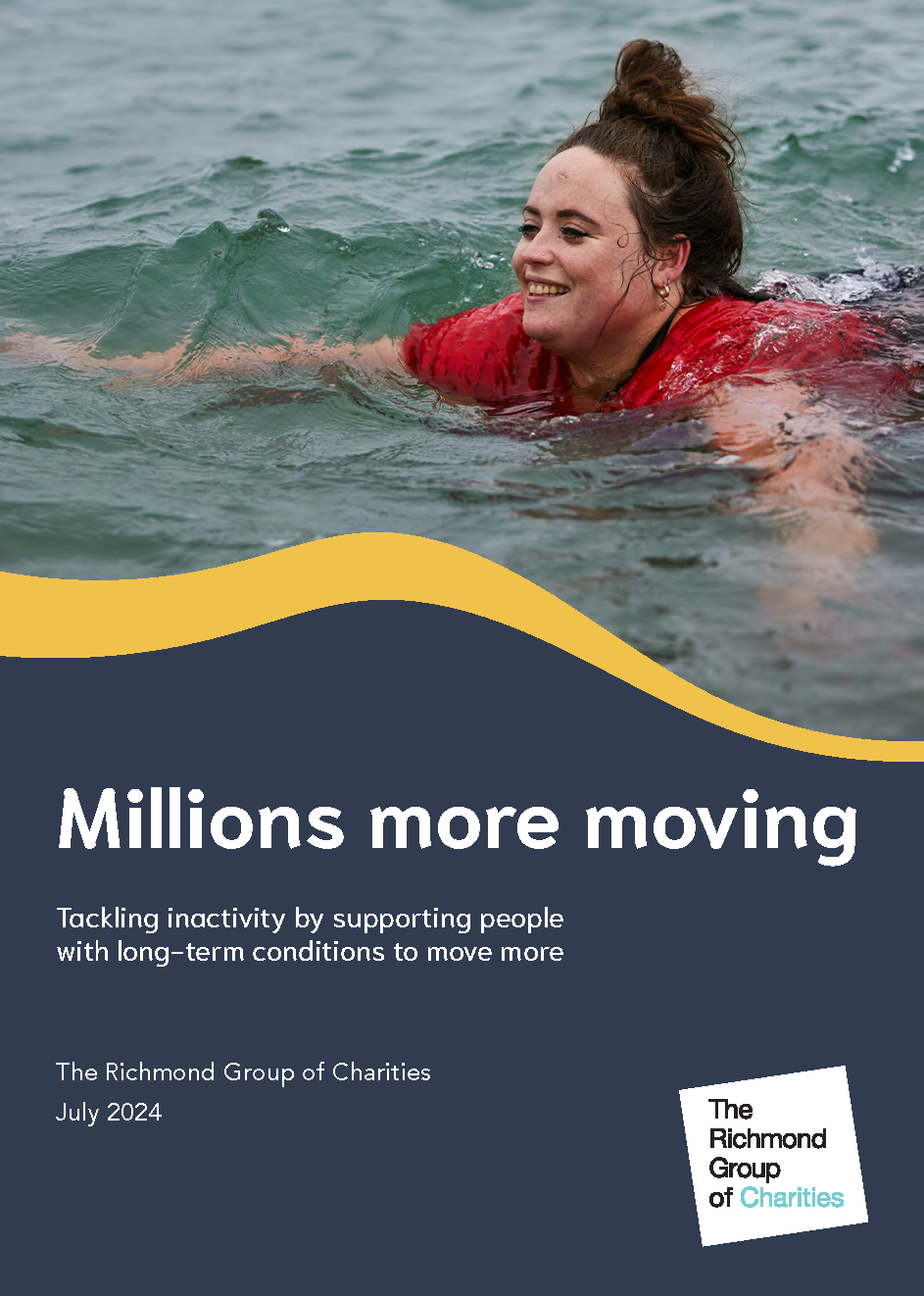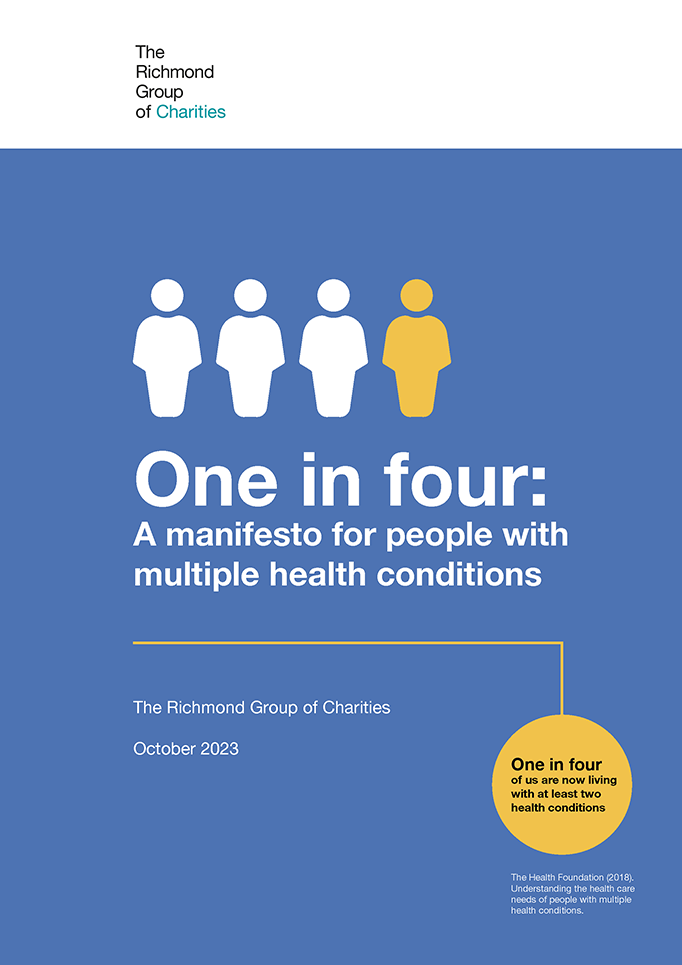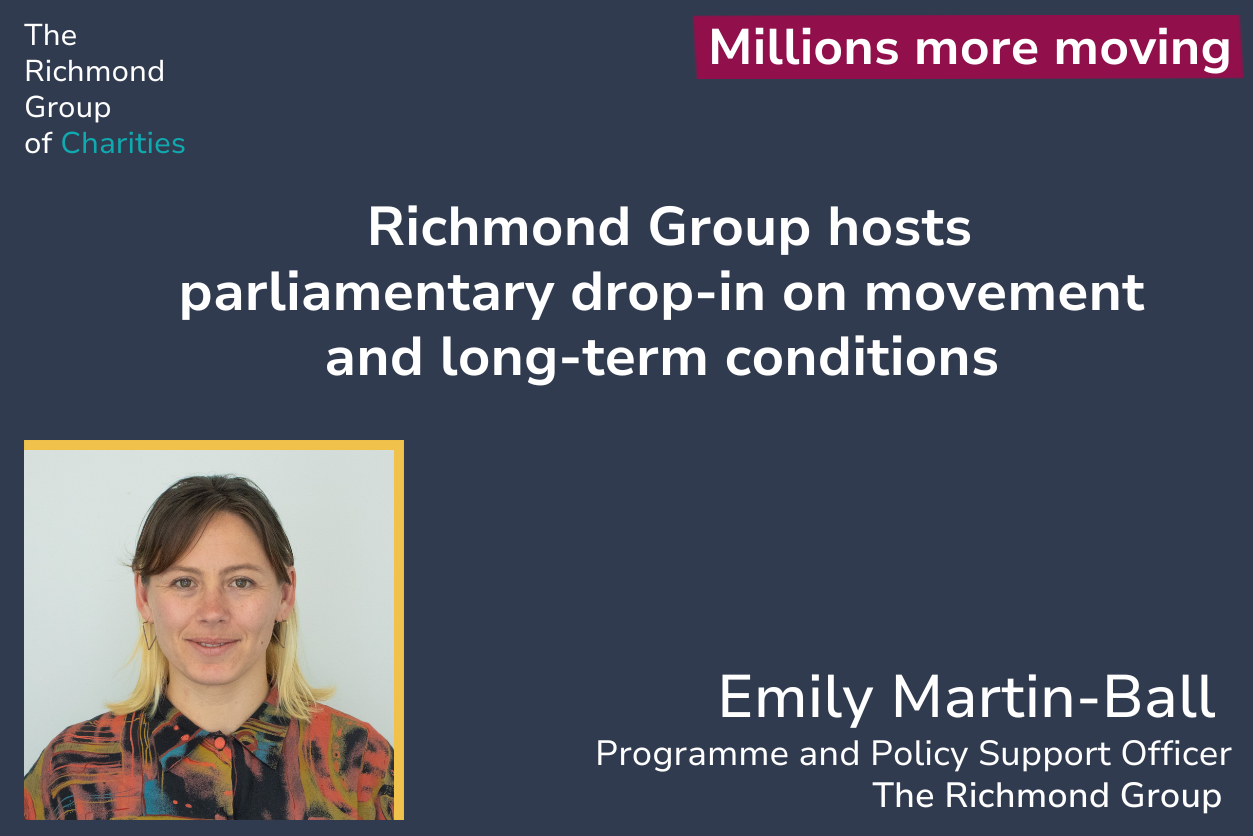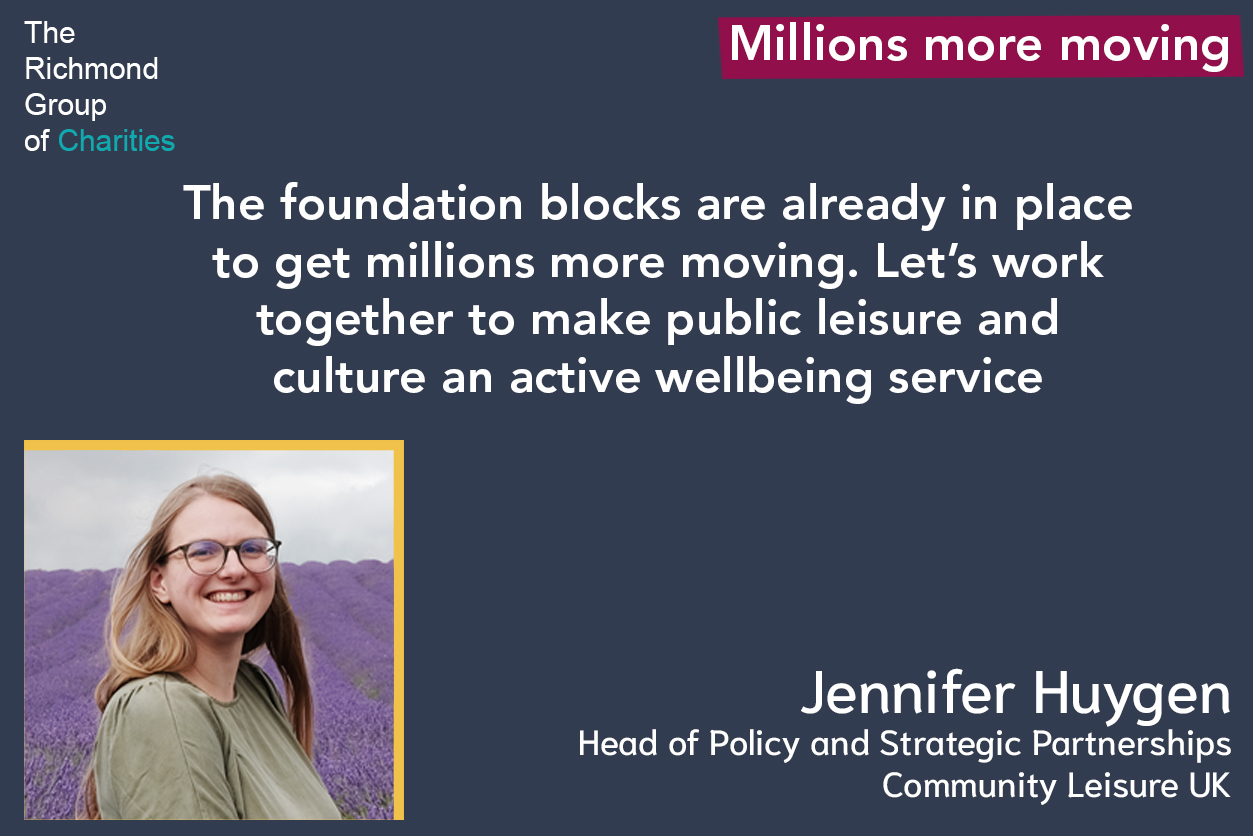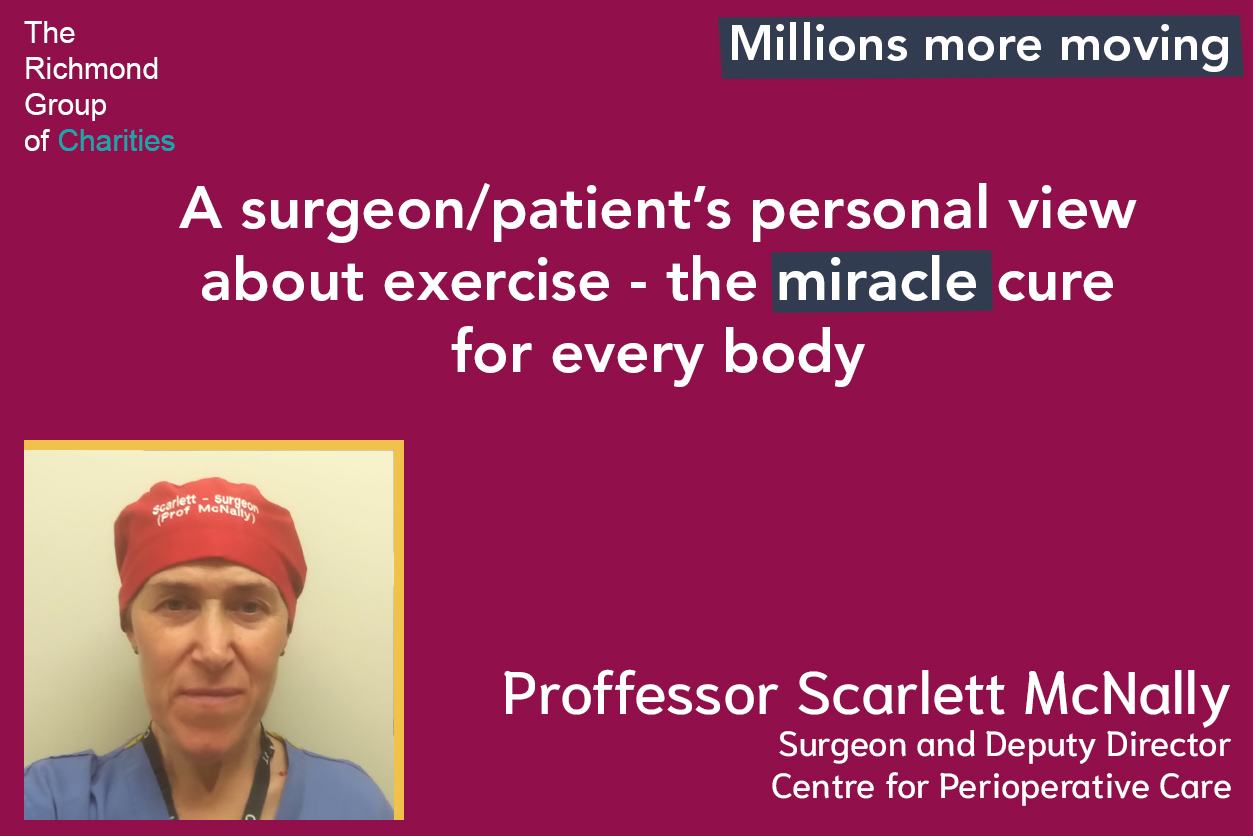Featured posts
One in four: A manifesto for people with multiple health conditions
Publication
Health and Care
Read Publication
Filter by subject
The Richmond Group of Charities continuing work on physical activity to 2028
Blog
Health Inequalities
Multiple Long-Term Conditions
Physical Activity
Sport
Read More
The 10 Year Health Plan – What it means for people with MS
Blog
10 Year Health Plan
Health and Care
Health Inequalities
Multiple Long-Term Conditions
Read More
Diagnosis Connect: the comfort, expertise and connection charities provide
Blog
10 Year Health Plan
Diagnosis Connect
Health and Care
Health Inequalities
Multiple Long-Term Conditions
Read More
Putting patients at the heart of cardiovascular reform
Blog
10 Year Health Plan
Health and Care
Health Inequalities
Multiple Long-Term Conditions
Read More
How can the 10 Year Health Plan deliver for people with musculoskeletal conditions?
Blog
10 Year Health Plan
Read More
Will the 10 Year Health Plan get millions more moving
Blog
10 Year Health Plan
Multiple Long-Term Conditions
Physical Activity
Read More
The 10 Year Health Plan – Our first impressions
Blog
10 Year Health Plan
Health and Care
Health Inequalities
Health Systems
Multiple Long-Term Conditions
Read More
Richmond Group hosts parliamentary drop-in on movement and long-term conditions.
Blog
Health Systems
Multiple Long-Term Conditions
Physical Activity
Read More
What can the 10-Year Health Plan change to improve care for people with multiple conditions?
Blog
Health and Care
Health Systems
Multiple Long-Term Conditions
Read More
The foundation blocks are already in place to get millions more moving. Let’s work together to make public leisure and culture an active wellbeing service
Blog
Physical Activity
Read More
A surgeon/patient’s personal view about exercise – the miracle cure for every body
Blog
Physical Activity
Read More
